Many people use that weaselly phrase about Antony Gormley, saying he “divides the critics”. For the most part this is not true: for the most part the critics loathe Gormley’s work. They suggest he is either a bad figurative sculptor masquerading as a conceptual artist, or a bad conceptual artist masquerading as a figurative sculptor. This is really just a whinge that he doesn’t fit in a box, but so what? Perhaps more useful is to think of him as the little girl with the little curl, because when he is good he is very, very good - the installation at Crosby Beach - and when he is bad he is horrid - One & Other, his concept for the Fourth Plinth in Trafalgar Square that spiralled out of control before it even began, and by the end was merely an exhibitionist’s paradise and an art-lover’s look-away-now moment.
Since then, Babel, his collaboration with choreographer Sidi Larbi Cherkaoui, has been on view at Sadler’s Wells, but Test Sites is his first return to a gallery space. Babel was a useful preview to the main piece in the basement of White Cube: Breathing Room III, like the set for Babel, is a series of outlines of boxes. On stage, these boxes surrounded the dancers, who created dance-spaces with them, from basic squares to an elaborate ziggurat. Here the huge piece, in luminescent white paint, glows out of the basement darkness, an elaborate, complex series of interlocking shapes that measure out nothingness. Intermittently, the lights blaze out. For what purpose it is not quite clear – if it is simply a dissociative device, it perhaps works too well, as the viewers’ eyes quickly squint shut against the glare, and the white frames vanish against the white lights and white walls. But in the gloom, the piece has a stateliness, a sense of internal logic.
This cannot be said for the pieces upstairs: these cast-iron figures, connected blocks and rectangles, feel like works in progress, objects made on the way to somewhere else, rather than finished works. The floor pieces seem to work best, with some sort of directional pull to them; but several of the uprights are lumpily clumsy, top heavy. They are “human”-shaped enough to read them as some sort of droid-ish beings (except one, leaning against a wall, which was determined to look like a penguin, no matter how much I tried to repress the thought). But at the same time the human shapes are not human enough: they fail to transcend these anthropomorphic ideas. Instead the pieces fall uneasily into a no-man’s land that is neither figuration nor abstraction, neither conceptualism nor aestheticism.
Gormley’s work is, in a long career, a usually successful working and reworking of a series of themes and variations, so I am perfectly prepared to believe that these sculptures will shortly re-emerge synthesized into more coherent form. But for the moment, I feel a bit like one of his Crosby Beach men - all at sea.
- Antony Gormley: Test Sites is at White Cube Mason's Yard until 27 July




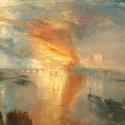

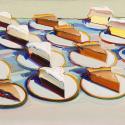

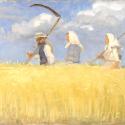
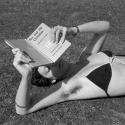
![SEX MONEY RACE RELIGION [2016] by Gilbert and George. Installation shot of Gilbert & George 21ST CENTURY PICTURES Hayward Gallery](/sites/default/files/styles/thumbnail_125_x_125_/public/mastimages/Gilbert%20%26%20George_%2021ST%20CENTURY%20PICTURES.%20SEX%20MONEY%20RACE%20RELIGION%20%5B2016%5D.%20Photo_%20Mark%20Blower.%20Courtesy%20of%20the%20Gilbert%20%26%20George%20and%20the%20Hayward%20Gallery._0.jpg?itok=3oW-Y84i)
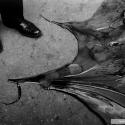
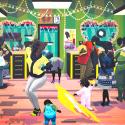
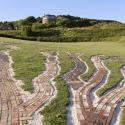
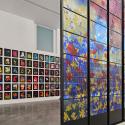
Add comment